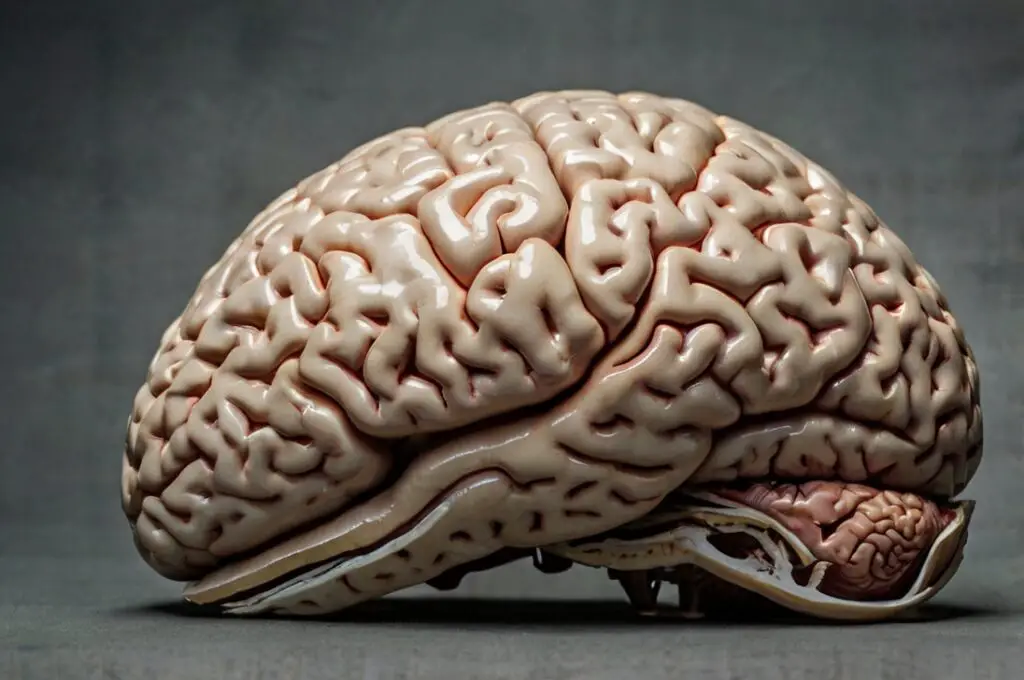
Genetic brain disorders are a group of conditions caused by changes or mutations in an individual’s genetic code that affect brain development and function.
These disorders can range from mild to severe, impacting a person’s physical and mental abilities and overall quality of life.
With advancements in medical science, our understanding of these disorders has improved, leading to better diagnostic tools and treatment options.
In this blog post, we will explore the different types of genetic brain disorders, their causes, symptoms, and how they are diagnosed and managed.
What Are Genetic Brain Disorders?
Genetic brain disorders are conditions where problems with genes or chromosomes affect how the brain works.
These issues can be caused by changes in genes that happen on their own, be inherited from a parent, or arise from a mix of genetic and environmental factors.
Some of these disorders are noticeable at birth, while others might not show up until later in life.
The impact and symptoms of these disorders can vary greatly depending on the specific condition and the person affected.

Types of Genetic Brain Disorders
There are various types of genetic brain disorders, each with its own set of characteristics and challenges.
Here’s a breakdown of some well-known ones:
Down syndrome
This condition happens when there is an extra copy of chromosome 21.
It leads to developmental delays, learning difficulties, and unique facial features such as a flatter face and slanted eyes.
People with Down syndrome often need extra support throughout their lives.
Fragile X syndrome
This is the most common inherited cause of intellectual disabilities.
It results from a change in the FMR1 gene, which affects brain development.
It can lead to learning difficulties, social and emotional challenges, and sometimes physical features like a long face or large ears.
Rett syndrome
This condition mostly affects girls and is caused by changes in the MECP2 gene.
Symptoms usually begin between six months and two years of age and include severe cognitive and physical impairments.
Affected individuals often lose skills they previously had.
Tay-Sachs disease
This rare inherited disorder leads to the gradual destruction of nerve cells in the brain and spinal cord.
It typically shows up in infancy and causes severe neurological decline, often resulting in early childhood death.
Huntington’s disease
This genetic disorder causes the progressive breakdown of nerve cells in the brain.
Symptoms usually start in adulthood and include movement issues, mood changes, and cognitive decline.
As the disease advances, it can significantly impact a person’s ability to move and think clearly.

Causes and Risk Factors
Understanding the causes and risk factors associated with genetic brain disorders is crucial in identifying, diagnosing, and managing these conditions.
Genetic mutations
Genetic mutations can occur randomly or be inherited from one or both parents.
These mutations alter the normal function of genes, leading to various brain disorders.
For example, a mutation in the HTT gene causes Huntington’s disease, while mutations in the HEXA gene lead to Tay-Sachs disease.
Environmental factors
While genetic mutations are the primary cause of these disorders, environmental factors can also play a role.
Exposure to harmful substances like cigarette smoke, alcohol, and certain drugs during pregnancy can increase the risk of genetic mutations that affect brain development.
For instance, a mother’s exposure to toxins during pregnancy can increase the likelihood of a child being born with a genetic brain disorder.
Family history
Family history plays a significant role in the likelihood of developing a genetic brain disorder.
If one or both parents carry a mutated gene, there is a chance that the disorder could be passed on to their children.
In some cases, even if a parent does not show symptoms, they may still be a carrier of a gene mutation that can cause a disorder in their offspring.

Symptoms and Effects
The symptoms of genetic brain disorders vary depending on the specific condition but often include a combination of physical, cognitive, and behavioral challenges.
Developmental issues
Genetic brain disorders often interfere with normal brain development, leading to delays in reaching developmental milestones.
This can include delayed speech and language skills, difficulties with motor skills, and challenges in social interactions.
For example, children with Fragile X Syndrome may experience delayed development of speech and motor skills.
Physical and mental symptoms
Common symptoms of genetic brain disorders include intellectual disabilities, learning difficulties, and distinctive physical characteristics.
For instance, individuals with Down syndrome often have a flat facial profile, a protruding tongue, and poor muscle tone, alongside cognitive delays.
Similarly, those with Rett syndrome may experience a loss of motor abilities, such as hand skills, and may develop seizures and breathing difficulties.
Impact on quality of life
These disorders can have a profound impact on an individual’s quality of life.
Daily tasks such as eating, dressing, and communicating can become challenging, requiring ongoing support from caregivers and healthcare professionals.
Moreover, the emotional and psychological toll on both the affected individuals and their families can be significant, highlighting the need for comprehensive care and support.

Diagnosis and Testing
Early and accurate diagnosis of genetic brain disorders is critical in managing symptoms and improving outcomes.
Newborn screening
Newborn screening is an essential tool in the early detection of genetic brain disorders.
In many countries, newborns are routinely screened for certain genetic conditions shortly after birth.
Early detection through screening can lead to prompt interventions that may mitigate the impact of the disorder.
For example, conditions like Phenylketonuria (PKU), a metabolic disorder that can lead to brain damage, can be managed effectively if detected early.
Genetic testing
Genetic testing is a key component in diagnosing genetic brain disorders.
Tests such as DNA sequencing, karyotyping, and microarray analysis can identify mutations or chromosomal abnormalities responsible for these conditions.
These tests are often recommended if there is a family history of a genetic disorder or if a child exhibits symptoms that suggest a genetic condition.
Pediatric geneticists
Pediatric geneticists play a crucial role in diagnosing and managing genetic brain disorders in children.
These specialists can interpret genetic test results, provide a diagnosis, and work with families to develop a management plan that may include medical treatments, therapies, and lifestyle modifications.

Treatment and Management
While there is no cure for most genetic brain disorders, treatments are available to manage symptoms and improve quality of life.
Symptom management
Medications can help manage symptoms such as seizures, mood swings, and hyperactivity.
Physical, occupational, and speech therapies are also commonly used to support individuals in developing skills and coping with the challenges of their condition.
Lifestyle modifications
Certain lifestyle changes can help manage the symptoms of genetic brain disorders.
For example, a balanced diet rich in essential nutrients can support overall brain health.
Regular physical activity, tailored to the individual’s abilities, can also be beneficial.
For some disorders, such as PKU, a strict diet is crucial to prevent brain damage and maintain cognitive function.
Emerging therapies
Advancements in medical research are paving the way for new treatments for genetic brain disorders.
Gene therapy, which involves correcting or replacing faulty genes, is a promising area of research.
While still in the early stages, gene therapy has the potential to treat the root cause of some genetic disorders, offering hope for improved outcomes in the future.
Conclusion
Genetic brain disorders are complex conditions that require a comprehensive approach to diagnosis, treatment, and management.
Understanding the causes, recognizing the symptoms, and seeking early intervention are key to improving the quality of life for individuals affected by these disorders.
While challenges remain, ongoing research and advances in medical science hold promise for better treatments and outcomes.



